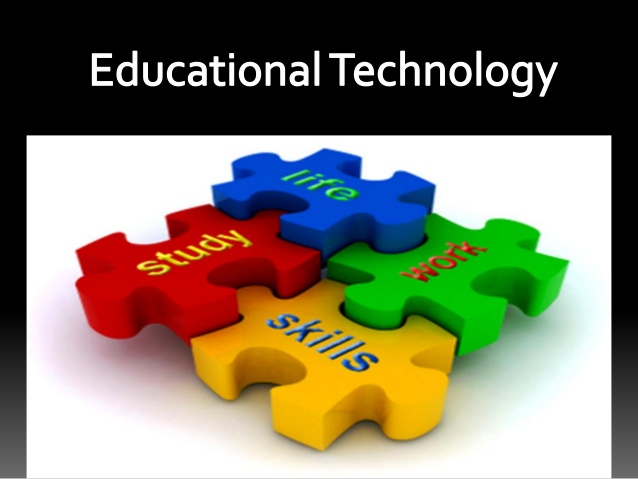Educational technology is the study and ethical practice of facilitating learning and refining performance by creating, utilizing and managing appropriate technological processes and resources.
The term educational technology is often linked with, and encompasses, instructional theory and learning theory. While instructional technology is “the theory and practice of design, development, utilization, management, and evaluation of processes and resources for learning,” according to the Association for Educational Communications and Technology (AECT) Definitions and Terminology Committee, educational technology comprises other systems used in the process of improving human capability. Educational technology includes, but is not limited to, software, hardware, as well as Internet applications, such as wiki’s and blogs, and activities. But there are still arguments on what these terms mean.
Technology of education is basically and comfortably defined as an array of tools that might prove helpful in advancing student learning and may be measured in how and why individuals behave. Educational Technology depends on a broad definition of the word “technology.” Technology can pertain to material objects of use to humanity, such as machines or hardware, but it can also encompass broader themes, including systems, methods of organization, and techniques. Some modern tools include but are not limited to overhead projectors, laptop computers, and calculators. Newer tools such as “smartphones” and games (both online and offline) are starting to draw serious attention for their learning potential. Media psychology is the field of study that applies theories in human behavior to educational technology.
In the Handbook of Human Performance Technology, the word technology for the sister fields of Educational and Human Performance Technology means “applied science.” In other words, any valid and reliable process or procedure that is derived from basic research using the “scientific method” is considered a “technology.” Educational or Human Performance Technology may be based purely on algorithmic or heuristic processes, but neither necessarily implies physical technology. The word technology comes from the Greek “techne” which means craft or art. Another word, “technique,” with the same origin, also may be used when considering the field Educational Technology. So Educational Technology may be extended to include the techniques of the educator.
A classic example of an Educational Psychology text is Bloom’s 1956 book, Taxonomy of Educational Objectives. Bloom’s Taxonomy is useful when designing learning activities to keep in mind what is expected of—and what are the learning goals for—learners. However, Bloom’s work does not explicitly deal with educational technology per se and is more concerned with pedagogical strategies.
According to some, an Educational Technologist is someone who converts basic educational and psychological research into an evidence-based applied science (or a technology) of learning or instruction. Educational Technologists typically have a graduate degree (Master’s, Doctorate, Ph.D., or D.Phil.) in a field related to educational psychology, educational media, experimental psychology, cognitive psychology or, more purely, in the fields of Educational, Instructional or Human Performance Technology or Instructional Systems Design.
